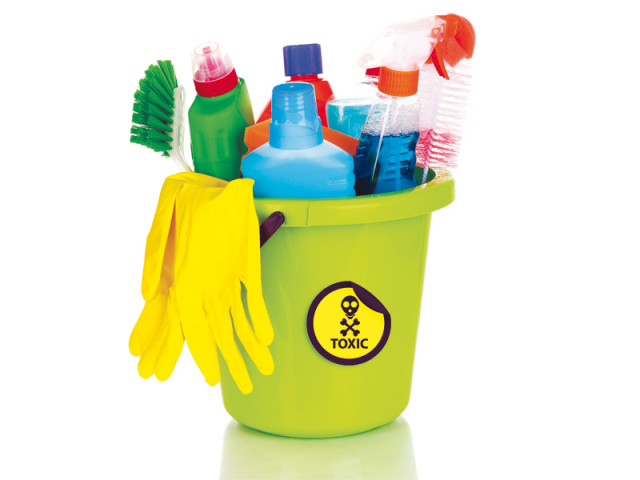Cleaning products poison indoor air
Research suggests air fresheners form secondary organic aerosols in homes, especially those with less ventilation

SOAs are microscopic particles, which are created when ozone reacts with volatile organic gases, such as limonene, the chemical name for the smell of oranges, or its cousin I-pinene, which is part of the smell of pine trees.
Some of the same chemical reactions that occur in the atmosphere as a result of smog and ozone are actually taking place in your house while you are cleaning, the team warned. “SOAs can come from ozone reactions with numerous sources, especially with compounds called terpenes that produce the scents we associate with cleaners, pine, lavender and oranges,” said Michael Waring, an assistant professor in the College of Engineering at the Philadelphia-based Drexel University in the US.
For the research, Waring and his team used an air testing chamber that they specifically designed to study the reactive behaviour of air in an indoor environment. With it, they were able to simulate limonene being added to the environment in pulses, the way it would be introduced indoors when spraying a limonene-containing cleaning product.
By adjusting elements of the test such as the air exchange rate and the concentrations of terpene and ozone in the chamber, the group was able to ascertain how those variables each affected the formation of SOAs. “We found that one of the biggest factors contributing to SOA formation by limonene ozonolysis was the air exchange rate,” Waring added.
“This research is particularly necessary in order to understand health impacts on people who use significant amounts of cleaning products,” the researchers noted. Some ways to reduce indoor aerosols are to use unscented cleaners and open windows while cleaning.
“Even though open windows bring in more ozone from outside, the reduction in the indoor limonene concentration and SOA formation strength more than make up for it, as less SOAs is formed inside,” the authors concluded.
Published in The Express Tribune, October 31st, 2014.
Like Life & Style on Facebook, follow @ETLifeandStyle on Twitter for the latest in fashion, gossip and entertainment.



















COMMENTS
Comments are moderated and generally will be posted if they are on-topic and not abusive.
For more information, please see our Comments FAQ